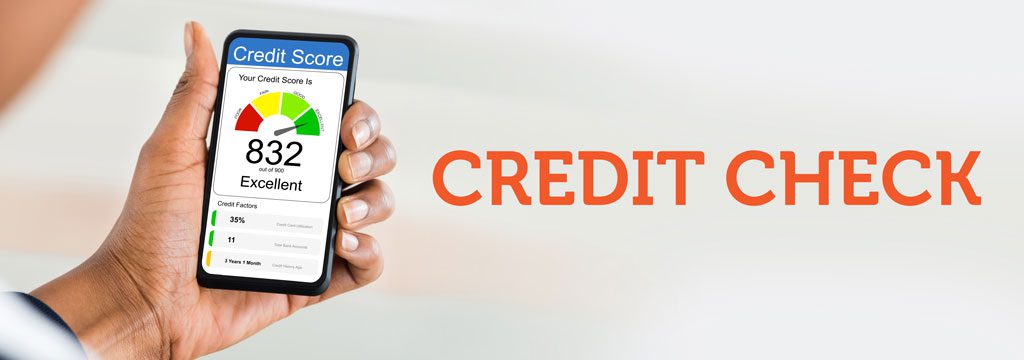Application and approval processes when getting a mortgage can be daunting and stressful, making credit checks an integral component in this journey – they serve as indicators to potential mortgage lenders as they assess and score your financial history.
This guide explores mortgage credit checks, their significance, outcomes, and insights into improving your score for greater mortgage approval chances. Our aim is to demystify this complex process so you can confidently navigate your journey toward mortgage approval.
What is a Mortgage Credit Check?
Credit checks during the mortgage application process examine your borrowing habits and financial prudence, giving lenders insight into whether they might lend you large sums of money for home purchases. They play an essential part in this journey by giving mortgage lenders confidence that loaning such large sums to you won’t put their own finances at risk.
Investigating your credit report gives an in-depth glimpse of both your past and current finances, providing insight into how well you managed debts and bills both now and previously. Furthermore, this allows lenders to gauge whether timely payments demonstrate good faith while missed ones raise red flags with lenders.
Here is an insight into what your credit report can reveal about you, providing mortgage lenders with a more in-depth portrait of your history.
- Your Name and Addresses: Confirming your identity and your current and past residence.
- Financial Associates: Anyone you share accounts or financial commitments with.
- Borrowing History: Includes type(s) of credit such as loans and credit cards, along with opening dates, limits/amounts available and current balances.
Understanding credit checks can make the mortgage approval process seem less intimidating and more approachable.

The Difference Between Hard and Soft Credit Checks
Understanding the difference between hard and soft credit check mortgage footprints is essential when applying for a mortgage. Both types of checks serve different purposes and have varying impacts on your credit score.
Hard Credit Checks
A hard credit check, also known as a hard credit search, is a comprehensive review of your credit file. Notably, it leaves a lasting ‘footprint’ on your credit report, which other financial institutions can view. This type of check can slightly lower your credit score, particularly if you have multiple hard searches within a brief period. However, for consumer protection, multiple hard checks performed within a 14 to 45-day window are typically treated as a single inquiry when shopping for mortgage rates.
- Leaves a visible mark on your credit report.
- Can lower your credit score if there are several in a short period.
- Viewed by other lenders, showing an active search for credit.
- Multiple inquiries within a short window are treated as a single inquiry for rate shopping.
Soft Credit Checks
On the other hand, a soft credit check, also known as a soft search, is a less intrusive review that doesn’t affect your credit score or leave a visible footprint on your credit report. Mortgage providers often perform soft search mortgage checks to get a preliminary understanding of your creditworthiness before conducting a full hard check.
- Does not leave a lasting mark on your credit report.
- Does not affect your credit score, keeping your rating intact.
- Not visible to other lenders, preserving your privacy.
- Used for preliminary assessments of creditworthiness before a full application.
How Long Do Mortgage Lenders Look Back at Credit History?
Diving into the world of mortgage applications, a question that often pops up is about how thoroughly mortgage providers investigate your credit history. Generally, the magic number is six years. Lenders peer into this significant stretch of your financial life to make informed decisions on your mortgage application. This six-year gaze offers a detailed snapshot of your financial conduct, spotlighting both potential concerns and achievements, including any instances of bankruptcy.
Key Aspects Reviewed by Lenders:
- Payment History: Showcases your punctuality in settling financial obligations.
- Credit Utilisation: Reflects on how you manage and utilise your available credit.
- Financial Missteps: Highlights any defaults, missed payments, or other financial hiccups.
- Credit Applications: Details the frequency and types of credit applications you’ve made.
Why Six Years?
This six-year period is grounded in UK credit reporting standards, where negative financial marks like defaults, CCJs, or resolved bankruptcies linger on your report for six years. It’s a timeframe considered adequate for lenders to gauge the risk levels of potential borrowers accurately.
Navigating Past Credit Issues:
Knowing that mortgage lenders scrutinise the last six years of your credit history can be a beacon of guidance for your mortgage preparation, especially if you’ve encountered financial turbulence.
- Recent Behavior Counts: Your latest financial actions speak volumes to lenders, emphasising the importance of stability and responsible credit management before applying.
- The Role of Specialist Lenders: For those navigating through rough credit waters during this period, connecting with specialist lenders adept at handling such cases is vital.
- The Path to Rebuilding: Showcasing financial growth and prudence over time is pivotal. Demonstrating your journey of financial recovery can be key to turning past negatives into approval positives.
Steps Towards Mortgage Approval:
Armed with the insight that your last six years of credit history will be under the microscope, here are practical steps to boost your mortgage approval prospects:
- Regular Credit Report Checks: Ensure accuracy and challenge any errors you find.
- Debt Reduction: Lowering existing debt levels showcases your financial prudence.
- Cautious Credit Applications: Limit new credit applications in the lead-up to your mortgage application to avoid potential red flags.
- Cultivate a Positive Payment Record: Timely bill payments can fortify your credit history with positive data points.
While past credit challenges may initially seem like hurdles to your mortgage aspirations, a recent history of positive financial decisions and a clear understanding of lender expectations can markedly improve your chances of securing a mortgage.
Impact of Bad Credit on Your Mortgage Application
Understanding the impact of adverse credit on your mortgage application may seem intimidating, yet it doesn’t need to be a dead end. Achieve approval with less-than-ideal credit history involves understanding how lenders view both your financial past and present.
Lenders look at a range of factors when considering your application, not only considering what issues have arisen but also taking their context into account.
- Severity and Timing: Examining the nature and timing of any credit issues.
- Financial Recovery: Rebuilding finances after such events.
Importantly, there are lenders who specialise in helping applicants with poor credit. These providers appreciate that every financial journey is unique, and are committed to finding an individualised mortgage solution tailored specifically to your situation.
Key Considerations for Applicants with Bad Credit:
- Specialist Lenders: There are mortgage lenders dedicated to helping those with less-than-perfect credit histories find financing. Those with late or missed payments.
- Individual Assessment: When conducting assessments of your overall financial position rather than just your credit score alone.
- Recovery and Improvement: Demonstrating financial stability since any credit issues is key in strengthening an application for recovery or improvement loans. Tailored Solutions: There are solutions tailored specifically to accommodate your unique history and standing.
Example: If your credit history experienced setbacks five years ago as the result of unexpected financial difficulties but has been near perfect ever since certain lenders may still consider you for a mortgage loan. They look at how effectively you have demonstrated that past issues are in the past while showing your present financial responsibility.


What Credit Rating For Mortgage Approval?
In the UK, your credit rating is an integral component in obtaining a mortgage. Lenders use your rating and credit history to assess your creditworthiness and ultimately determine your interest rates. Here’s a helpful overview:
- Credit Rating Basics: Your numerical credit score provides insight into your financial history and creditworthiness.
- Impact on Mortgages: With higher scores comes lower interest rates and access to more attractive products for financing a home purchase.
- Minimum Requirements: While minimum credit rating for mortgage approval depend on your lender, typically an excellent rating would fall above 670 (Experian scale).
How Your Credit Score Affects Your Mortgage Rates
Your credit score plays a key role in determining the interest rates when borrowing money on a mortgage loan. A higher score typically results in more desirable mortgage rates, while lower scores can cause higher interest rates or even outright denial of the loan.
Lenders use your credit score as a risk indicator. A high credit score indicates you’re less likely to default on future mortgage loans; conversely, low scores suggest difficulty making timely repayments, making you a higher-risk borrower.
For example, if Person A has a credit score of 850 and Person B has one of 600, it is much more likely that Person A will be offered a lower mortgage interest rate.
How To Improve Your Credit Score
Improving your credit score won’t happen overnight, but there are various strategies that can get you on the right path:
- Register on the electoral roll: Registering can provide an extra boost to your credit score, giving a significant improvement to it. It doesn’t take long, register on the electoral roll here >
- Regularly review your credit report: Make sure to check your credit report for errors. Dispute any inaccuracies you find with the creditor immediately.
- Always pay your bills on time: Consistently meeting your financial obligations demonstrates to lenders that you’re a responsible borrower.
- Reduce debt: Paying down debts can positively affect your own credit report and score.
- Avoid making multiple credit applications: Too many hard credit searches in a short period can negatively impact your score.
Adopting these five steps can increase a minimum credit score, thereby increasing your chances of securing a mortgage on favourable terms.
Your Credit History: Understanding UK Mortgage Credit Reference Agencies
There are three main credit reference agencies in the UK, which we delve into here:
1) Experian
Experian is a leading UK credit reference agency, providing mortgage lenders with detailed reports about borrowers’ financial behaviors, credit amounts and payment history. Through Experian’s CreditExpert service, consumers can also gain access to their scores as well as gain tips for improvement.
Experian Credit Scores
- Very Low: 0 – 560
- Low: 561 – 720
- Fair: 721 – 880
- Good: 881 – 960
- Excellent: 961 – 999
2) Equifax
Equifax provides detailed credit reports in the UK, detailing consumers’ credit behavior – such as past and current credit agreements as well as public records such as county court judgements (CCJs). Their online platform gives consumers access to reports and scores for improved mortgage preparation.
Equifax Credit Scores
- Very Low: 0 – 438
- Low: 439 – 530
- Fair: 531 – 670
- Good: 671 – 810
- Excellent: 811 – 1000
3) TransUnion (formerly Callcredit)
TransUnion provides comprehensive credit reports and scores through their Noddle service, making mortgage application preparation simpler by pinpointing areas for improvement. Review reports from all three agencies for a full credit picture.
TransUnion Credit Scores
- Very Low: 0 – 550
- Low: 551 – 565
- Fair: 566 – 603
- Good: 604 – 627
- Excellent: 628 – 710
4) Crediva
The UK credit reference agency Crediva specialises in alternative credit scoring models. It provides credit risk assessments for individuals who may be considered high risk due to a lack of previous credit score or inadequate credit history. Crediva’s approach combines technology, alternative data, and advanced scoring analytics to serve a more diverse range of the UK population. It offers a Statutory Credit Report detailing the financial history of your credit and public records. Crediva also provides guidance on improving credit chances and resources for identity protection.
We currently do not know the credit score ranges for Crediva as they are not shown on their website. It’s advisable to contact Crediva directly for this information.
Introducing the power of Checkmyfile
Checkmyfile provides comprehensive multi-agency credit reports, drawing data from three out of the three major UK agencies: Equifax, Experian, TransUnion.
The modern approach to checking your credit history offers a line-by-line comparison of credit data, identity protection tools, and a support team for customer queries. Users can track their history of credit, understand score influencers, and rectify incorrect financial associations. The service offers a 30-day free trial, (then £14.99 monthly a month, cancel anytime), and is also highly rated on Trustpilot.
Learn more about Checkmyfile UK or alternately get your FREE credit report here >
What does a credit report show?
UK credit reports are overseen by credit reference agencies like Experian, Equifax, and TransUnion. These entities gather and organise data about a person’s credit account from a variety of sources such as banks, lending institutions, and public registries. The data commonly present in a UK credit rating, particularly for a mortgage application, typically involves:
- Personal Details: This section incorporates data such as your name, residential address, date of birth, and electoral roll details.
- Credit Histories: This portion outlines details about your credit engagements, including mortgages, personal loans, credit cards, and overdrafts. It carries details about the lender, account number, commencement date, credit limit, and remaining balance.
- Payment Track Record: This section discloses data about your payment habits, for instance, whether your monthly repayments have been timely or if there have been any instances of delayed or missed payments.
- Financial Connections: Any financial ties with other people, like a joint mortgage or a shared bank account, will also be reflected in this section.
- Public Records: This section carries details about any public records like bankruptcies, Individual Voluntary Arrangements (IVAs), County Court Judgments (CCJs), and insolvencies.
- Electoral Roll Data: This data confirms your registration on the electoral roll, aiding in validating your address history and identity.
- Credit Inquiries: As suggested earlier, this section displays a log of entities or individuals who have viewed your credit record. It encompasses both hard and soft inquiries.
Bear in mind that the specific layout and data enclosed in a UK credit record can differ among various credit reference agencies. Consequently, it’s advisable to reach out to the relevant credit reference agency or lender for the most precise and current details concerning credit reports for mortgage applications in the UK.
FAQs: Commonly asked questions about credit checks
Should I do a credit check before applying for a mortgage?
Absolutely, conducting a credit check before applying for a mortgage loan is definitely advised. This process enables you to comprehend your credit standing, discover potential inaccuracies, and estimate your potential for mortgage approval. It empowers you with insights to make informed decisions and evade possible denials.
What do they check on a credit check for a mortgage?
A credit examination for a mortgage scrutinises various aspects of your credit rating. This includes an assessment of your repayment habits, outstanding credit obligations, duration of credit history, diversity of credit types, and the proportion of credit utilisation.
How far back do they check your credit for a mortgage?
Mortgage lenders usually review your credit activities spanning the last six to seven years. However, certain severe issues like bankruptcies and foreclosures may still be considered even if they occurred beyond this timeframe.
Does a mortgage credit check affect your score?
Indeed, a hard credit check for mortgage applications might momentarily reduce your credit score by a few points. Nevertheless, multiple checks within a short span are generally recognised as a singular inquiry.
Is a mortgage credit check soft or hard?
The preliminary credit check might be a soft inquiry, which leaves your score unaffected. Nonetheless, once you officially apply, lenders execute a hard credit check that may impact your credit score.
What credit check do mortgage lenders use in the UK?
Mortgage providers s in the UK utilise data from credit reference agencies (Experian, Equifax, or TransUnion) to evaluate your creditworthiness. These agencies supply a comprehensive report of your credit past.
What is a soft search for a mortgage?
A soft search, also known as a soft credit check, is an initial review of your credit report that leaves no trace. It offers lenders a snapshot of your creditworthiness without influencing your credit score.
What comes up on a soft credit search?
A soft credit search reveals fundamental credit data such as your repayment track record and active credit agreements. However, it doesn't disclose in-depth details and is not noticeable to other lenders.
Can mortgage companies see soft inquiries?
No, soft inquiries remain confidential to you on your credit report. They are invisible to mortgage companies and other lenders.
Does soft credit check affect mortgage?
Soft credit checks do not harm your credit score or impede your ability to secure a mortgage as they are not disclosed to lenders.
Can mortgage lenders see soft searches?
Soft searches are hidden from a mortgage provider. They are recorded on your credit file but do not affect your credit score or subsequent credit applications.
The Role of a Mortgage Broker in Securing a Mortgage
Navigating the mortgage application process can be complex, particularly if you have bad credit. That’s where mortgage brokers are worth their weight in gold.
Mortgage brokers such as YesCanDo Money have access to a wide variety of lenders (in fact over 90) and can recommend the best options suited to your situation and get you the best mortgage deals. An experienced mortgage broker can guide you through the application procedure, help you understand credit checks when getting a mortgage, and provide advice on getting a good credit score.
The Expert’s Opinion: Insights from Financial Advisors
Financial advisors bring years of expertise to the table, making their insights invaluable when navigating the application process. Grant Humphries, a CeMAP-certified mortgage and protection adviser at YesCanDo Money, highlights the importance of understanding your credit history before applying for a mortgage.


“Getting to know your credit report is crucial,” says Grant. “Not only can you dispute any inaccuracies, but you can also identify areas of improvement. Then, you can work on rectifying those issues before submitting your mortgage application. This significantly improves your chances of a successful application.”
Concluding on credit checks when getting a mortgage
While the prospect of a credit check for mortgage applicants can appear daunting, understanding its purpose and working can alleviate the apprehension. Bad credit doesn’t necessarily preclude you from obtaining a mortgage. With careful planning, smart financial decisions, and help from a mortgage broker, you can boost your credit score, find the ideal mortgage lender (including bad credit lenders) and increase your chances of securing one.
Everyone’s credit situation varies; what works for one individual may not work for the next. We always recommend seeking professional advice tailored specifically to your personal circumstances. Learn how to prepare for a mortgage here or browse our extensive range of mortgage advice guides. If you’re uncertain about any aspect of getting a mortgage or have queries about your credit report, don’t hesitate to reach out to the experienced team YesCanDo for helpful advice.


